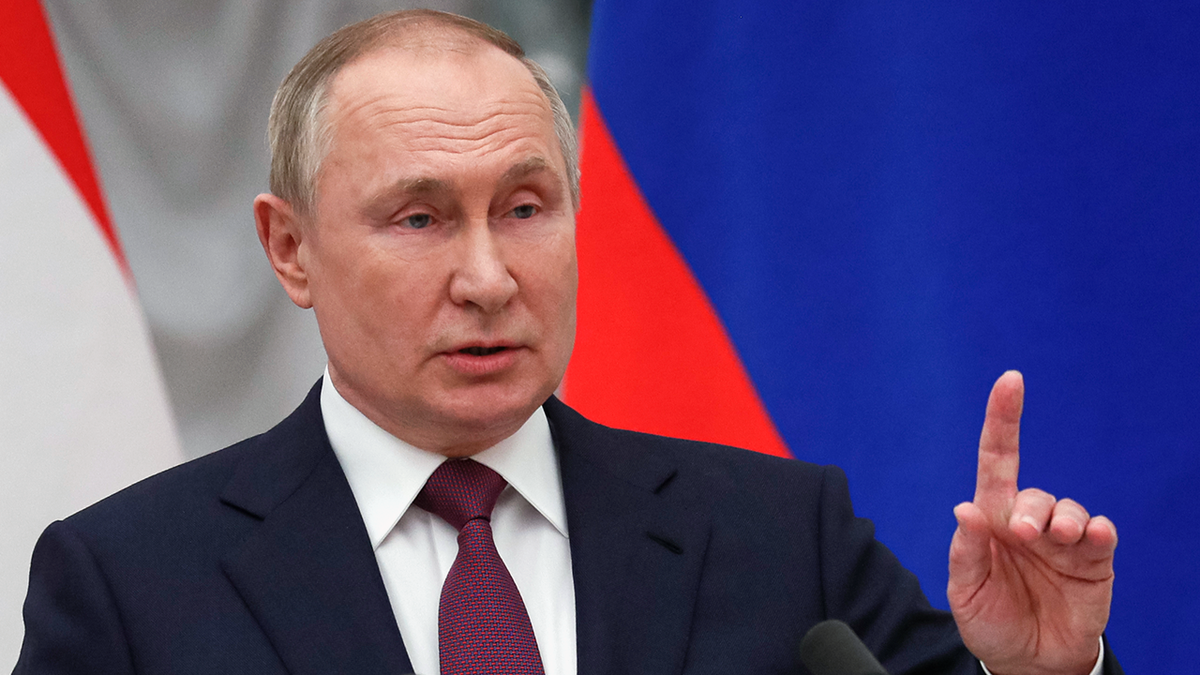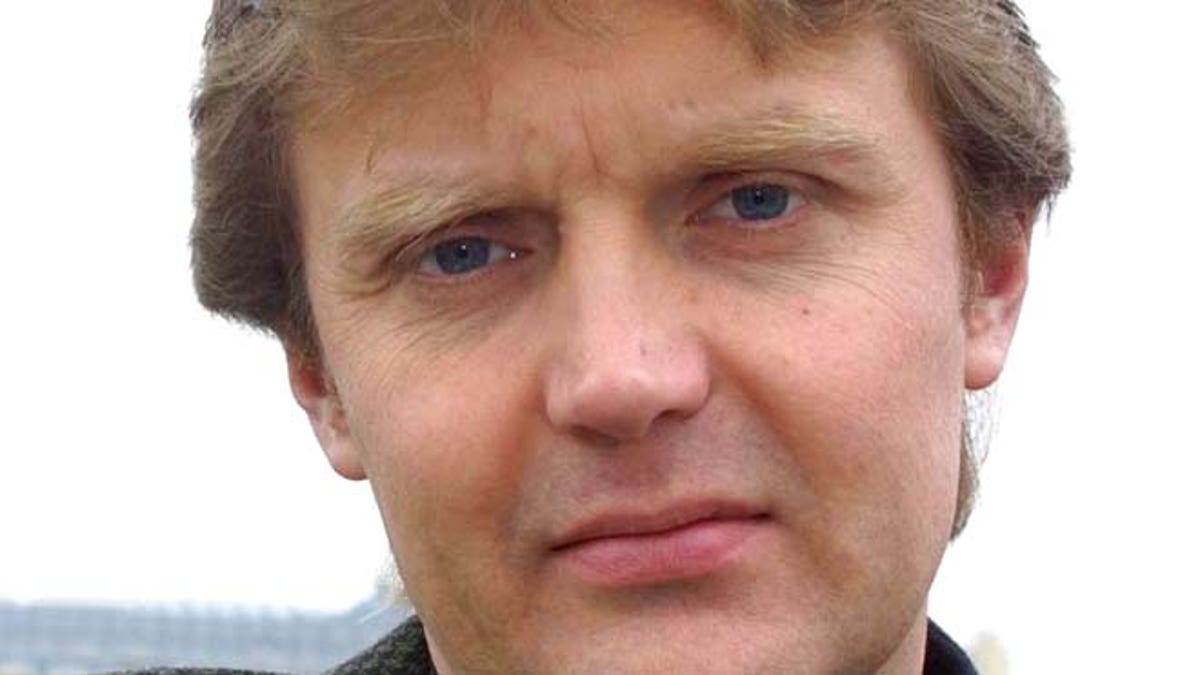Putin seeking to inflict as much punishment as possible on Ukraine: Former DNI
Former Director of National Intelligence John Negroponte reveals which countries Putin could retaliate against on 'Your World.'
The mad hatter theme is now becoming conventional wisdom among some of the foreign policy elite and media.
Spurred on by former Secretary of State Condoleezza Rice, who said the Russian president was "erratic" and increasingly "delusional, and former Director of National Intelligence James Clapper, who called Russia’s leader "unhinged," many in the foreign policy establishment have embraced the notion that only a mad man would put his nation’s nuclear forces on alert after invading a neighboring state, claiming self-defense.
But while Putin’s determination to reclaim the Soviet empire and Russia’s sphere of influence may be delusional, it is not insane. In fact, Putin’s actions, while seemingly irrational, are consistent. And until now, his egregious violations of international law and human rights have been successful.

FILE – Russian President Vladimir Putin. (Yuri Kochetkov/Pool)
Ever since coming to power 22 years ago, the former KGB official has specialized in killing, individually and en masse, conventionally and unconventionally.
When Putin was prime minister in 1999, he was suspected of having approved a series of bombings in four Russian cities, two of them in Moscow, that killed over 300 people. Blaming the bombings on Chechen rebels, Putin then used the ostensible terror attacks as a pretext to reignite a second war in Chechnya, launching a massive air and land campaign that resulted in thousands of refugees, reduced much of Grozny, the capital, to rubble and killed at least 25,000 civilians.
Many of his prominent Russian critics have shared their fate, some through poisoning, a KGB specialty. Among the most egregious examples was exiled former Russian spy Alexander Litvinenko, whose tea in London was laced with polonium, a highly radioactive substance.
CONDOLEEZZA RICE: PUTIN ‘SEEMS ERRATIC,’ ‘DESCENDING INTO SOMETHING’ NEVER PERSONALLY SEEN BEFORE
An official British report found that Litvinenko’s death in 2006 was "probably" approved by Putin. After Britain failed to act, Putin is said to have ordered the use of a deadly chemical agent Novichuk on a former Russia spy, Sergei Skripal, also a U.K. resident.

Alexander Litvinenko, a former FSB officer who defected to London in 2000, was killed with isotope-laced tea. (AP)
The 2018 attack nearly killed Skripal and his daughter. Though Putin denied Russian responsibility, Prime Minister Theresa May said the poisoning in the city of Salisbury was "almost certainly" approved at senior levels in Moscow.
Putin has not hidden his political agenda. At the Munich Security Conference in 2007, he complained bitterly about American dominance of global affairs and Washington’s desire to expand NATO to his borders. Russia would no longer tolerate such a "unipolar" world, he warned.
KREMLIN SENDS 400 RUSSIAN MERCENARIES INTO KYIV ON MISSION TO ASSASSINATE ZELENSKYY: REPORT
The world did not have long to wait. In 2008, he invaded Georgia with ostensible "peace keepers" and sliced off the Georgian provinces of South Ossetia and Abkhazia. To justify his aggression, he used the pretext he would later invoke in Ukraine – he was sending troops to protect Russian speakers in the country who wished to be re-united with the motherland.
In 2014 invoking the same pretext, he seized Ukraine’s Crimea and ignited a war in Luhansk and Donetsk that has already killed some 14,000 people. In both cases, the U.S. and its western allies responded meekly. Putin paid little price.
CLICK HERE TO GET THE OPINION NEWSLETTER
While Putin’s main focus is on restoring Russian dominance of the former Soviet Union’s domain, it is not his only ambition. Seeking to gain influence in the Middle East, he supported Bashar al-Assad’s brutal regime in Syria in what was until now the deadliest conflict of the 21st century.
In the siege and recapture of Aleppo by Assad and his Russian and Iranian allies, Syrian forces slaughtered civilians, bombed hospitals and other civilian targets, flattened entire neighborhoods – all war crimes.
This is Putin’s playbook – unhidden, repeated, and until now, relatively painless. So is it rational for him to have assumed he would pay little price for invading a nation he claimed to be geographically, historically, and culturally linked to his own?
Four previous American presidents and their allies have ignored his earlier political transgressions. And while President Biden tried to deter an invasion of Ukraine by disclosing American intelligence showing what Putin was planning, he also repeatedly stated that the U.S. would not send forces into Ukraine if Russia invaded. While it is unclear whether strategic ambiguity about American intentions might have given Putin pause, at very least it might have made him reconsider the potential price of such an aggression. Bullies tend to keep pushing until someone pushes back.
CLICK HERE TO GET THE FOX NEWS APP
So has Putin changed? Perhaps, rather, it is our understanding of him that has shifted.
"It’s still him," said Richard Clarke, the former national security and cyber defense official," the same amoral mendacious sociopath he’s always been."












































